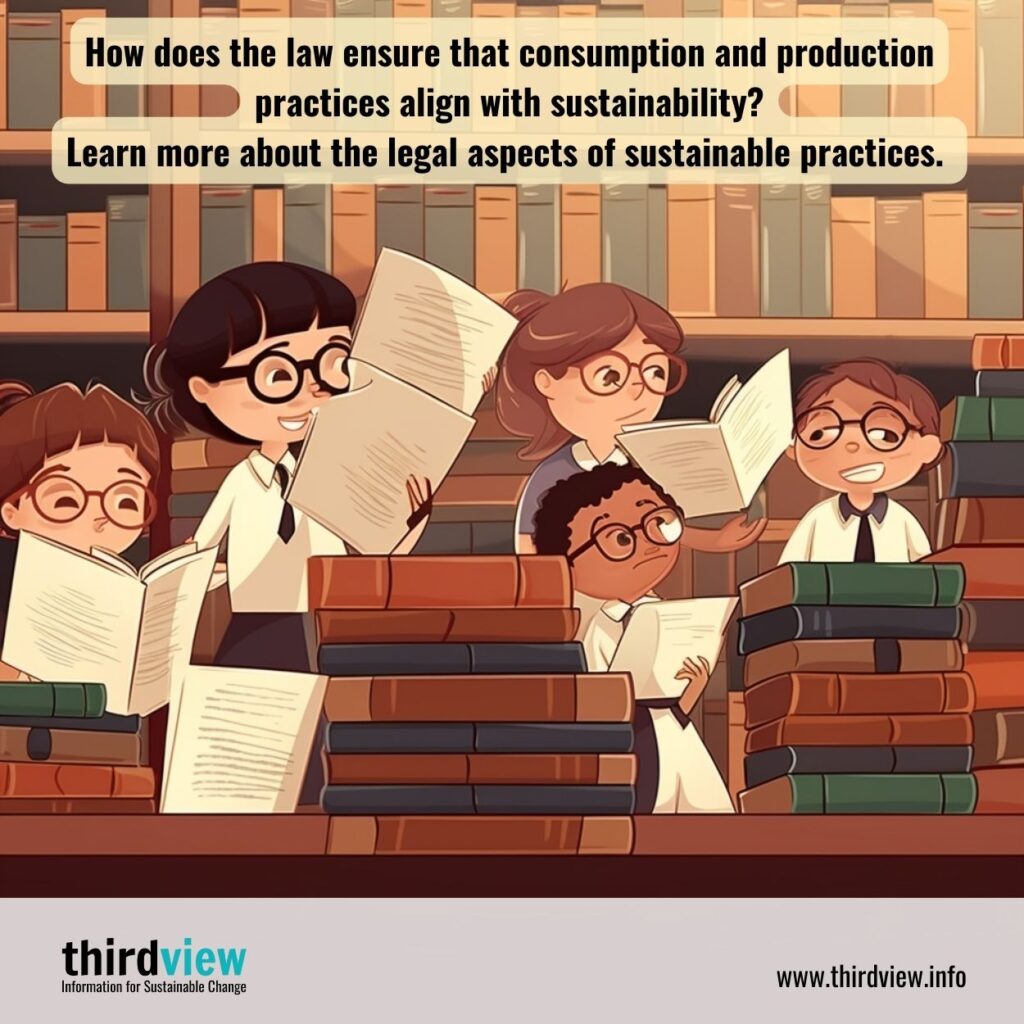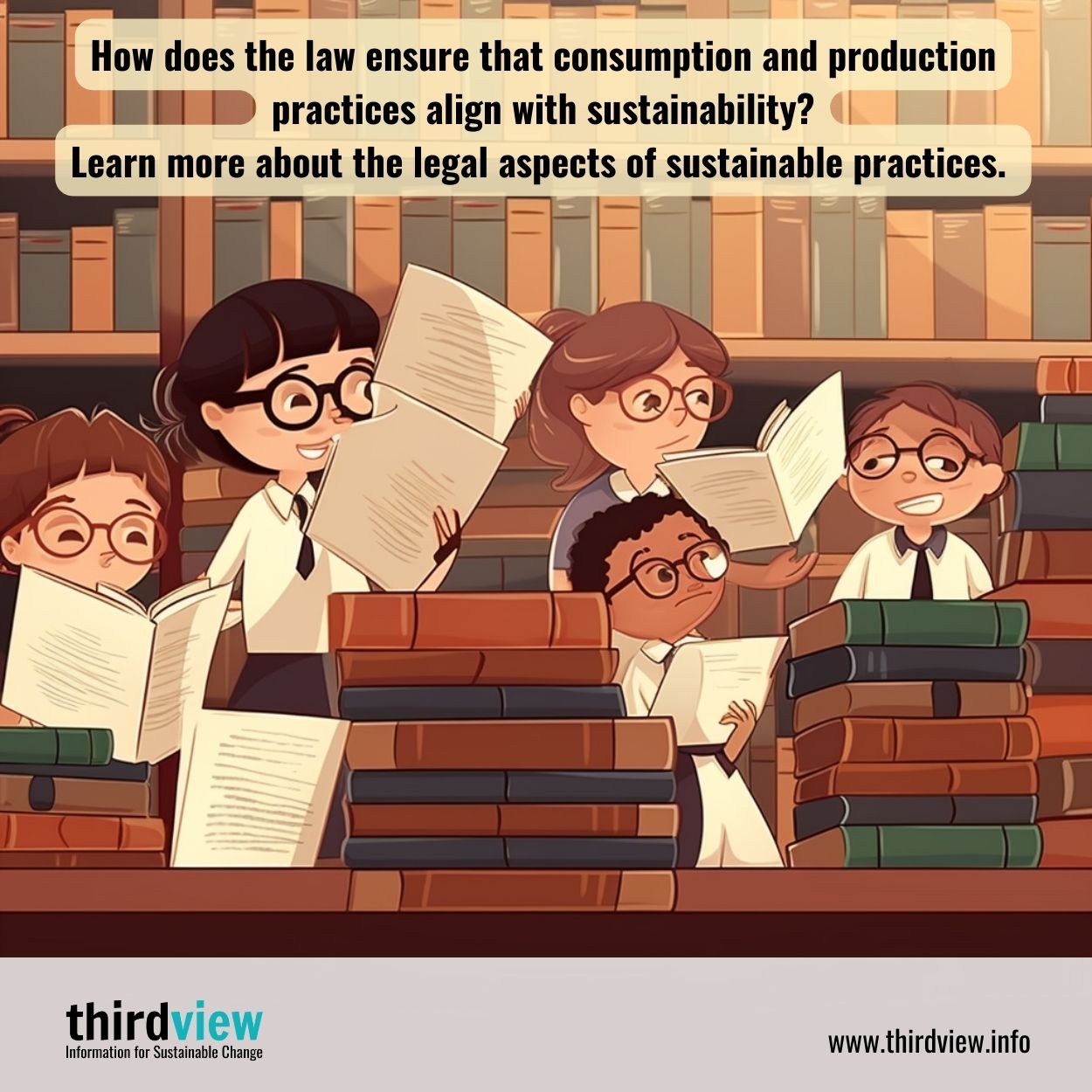Sustainable consumption and production are deemed essential in technical, economic, social, and environmental spheres. However, progressive development in consumption and production patterns necessitates compliance with regulatory and legal rules. There needs to be an understanding of how legal frameworks play a role in determining how development patterns follow sustainable practices that encompass social, economic, and environmental principles. How does the law ensure that consumption and production practices are in line with sustainability?
Sustainable development must entail the harmonization of legal frameworks, social practices, and environmental standards. The legal framework advances sustainability concerns through the formulation and implementation of policies that align with social, environmental, and economic principles. This legal framework serves as a platform where businesses have environmental and social stewardship responsibility throughout their supply chains. For example, governments may provide incentives for businesses to adopt low-carbon production methods or increase the use of renewable energy resources.
On the other hand, legal regimes may also impose penalties for environmental violations and practices that harm social standards. For instance, a business that pollutes water sources or jeopardizes nearby residents’ health may be subjected to civil suits for compensation and regulatory penalties. Such regulations and laws encourage suppliers to prioritize environmental and social sustainability. The legal aspects, thus, apply not only to legal compliance but also to enforcing best practices for sustainability and environmental performance.
Additionally, legal standards and labelling can also help advance sustainable consumption. Legal regimes have a huge potential impact on business models, production and consumption patterns, and contractual arrangements. Labelling mechanisms may be used as part of the legal regimes to help signify environment-friendly products that reinforce sustainable consumption patterns such as reducing the consumption of meat, waste reduction, and the decrease in energy consumption. Legal acts such as requiring buildings to have a “green label” are useful in promoting sustainable housing development and selling of environment-friendly products to the public.
Ultimately, legal principles and frameworks are meant to enforce the balance between sustainable development, social responsibility, and environmental performance. However, incorporating sustainability principles into the legal framework remains a challenge. Although many countries incorporate the concept of sustainability in environmental law, the principles have not been fully embraced across sectors and regions. Therefore, sustainability law needs to be integrated into other areas of the legal system, such as social and economic laws, to ensure sustainability as a cross-cutting agenda.
To sum up, sustainable consumption and production practices are vital in addressing global sustainability challenges. However, these practices are increasingly dependent on regulatory and legal frameworks. The legal frameworks enhance sustainability practices in businesses, ensuring adherence to environmental and social policies. The legal regimes’ cost-effective nature makes them an excellent tool for promoting sustainable consumption while reducing the negative human impact on the environment. However, to achieve sustainability in consumption and production patterns, international and regional legal frameworks must integrate sustainable principles into economic, social, and environmental laws.


